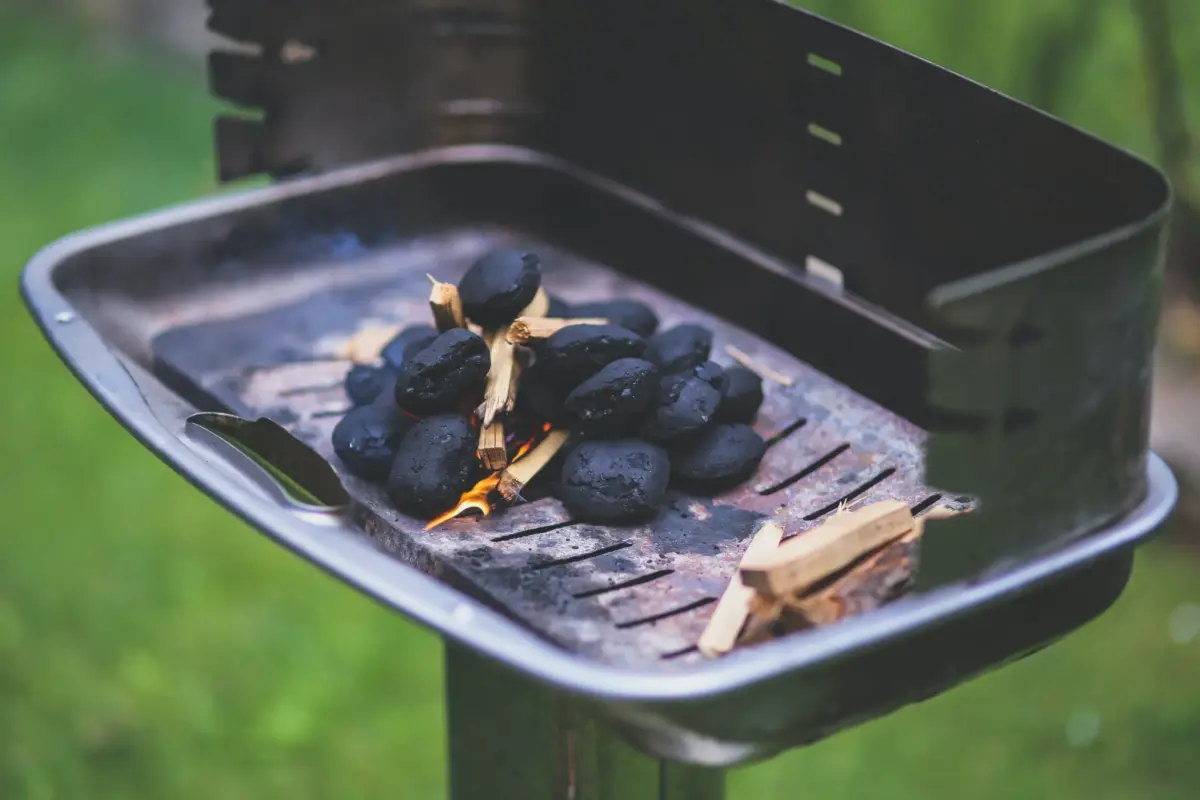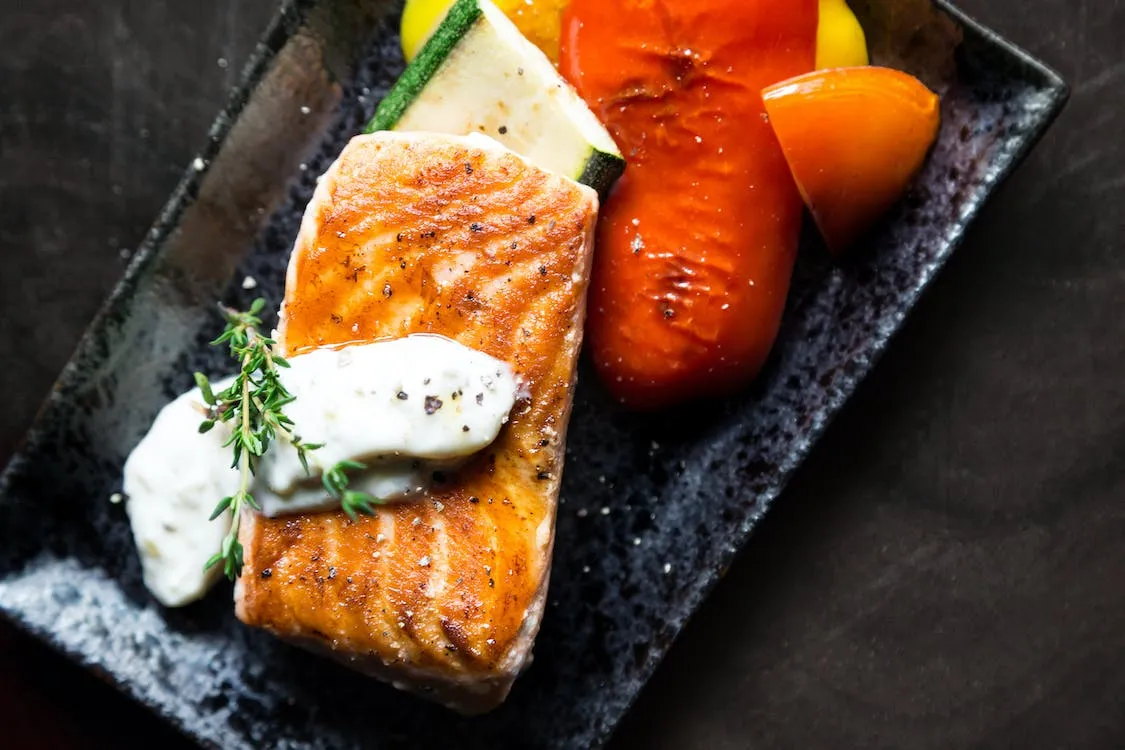
Are you someone who loves barbecue but has to follow a gluten-free diet? Well, you’re in the right place! In this article, we’ll explore the question: does barbecue have gluten? We’ll dive into the world of barbecue sauces, rubs, and marinades to find out if they contain gluten and provide you with some helpful tips for enjoying a gluten-free barbecue experience. So, grab a seat and get ready to learn all about gluten and barbecue!
If you have celiac disease or a gluten intolerance, it’s essential to be mindful of what you eat. Barbecue can be a bit of a gray area when it comes to gluten, as some traditional barbecue sauces and seasonings may contain gluten-containing ingredients. In this article, we’ll break down the different components of barbecue and examine whether they typically contain gluten. We’ll also discuss some gluten-free alternatives that you can use to enjoy the flavors of barbecue without worrying about gluten. So, let’s get started and unravel the mystery of gluten in barbecue!
What is Gluten?
Now that you’re diving into the world of barbecue, it’s important to understand what gluten is. Gluten is a protein found in wheat, barley, and rye. It gives dough its elasticity and helps it rise. Unfortunately, for those with celiac disease or gluten intolerance, consuming gluten can cause a range of digestive issues and other health problems.
When it comes to barbecue, the concern about gluten arises mainly from the sauces, seasonings, and marinades used in the cooking process. Many traditional barbecue sauces and seasonings contain ingredients that may contain gluten. This can include soy sauce, malt vinegar, and wheat-based thickeners.
While gluten itself is not present in the meat or vegetables you’re grilling, cross-contamination can occur if you’re using utensils or surfaces that have come into contact with gluten-containing ingredients.
Understanding the basics of gluten is crucial for those who need to follow a gluten-free diet. By being aware of the potential sources of gluten in barbecue, you can make informed choices and enjoy a delicious meal without compromising your health.
Understanding Barbecue
Whether you’re a seasoned grill master or a beginner BBQ enthusiast, understanding the basics of barbecue is essential for creating mouthwatering dishes. From choosing the right cuts of meat to mastering the perfect grill temperature, there’s a lot to learn. So, let’s dive in and explore the wonderful world of barbecue!
The Art of Low and Slow
At the heart of barbecue is the technique of cooking low and slow. This means cooking your meat at a low temperature for an extended period. This method allows the flavors to develop and the meat to become tender and juicy. It’s what gives barbecue its distinctive taste and texture.
The Importance of Smoke
Smoke is another key element in barbecue. It adds depth and complexity to the flavor of the meat. Different types of wood impart different flavors, so it’s worth experimenting with options like hickory, mesquite, or fruitwoods to find your favorite.
Sauces and Seasonings
When it comes to barbecue sauces and seasonings, it’s essential to be mindful of gluten. Some commercial sauces and seasonings may contain gluten as a thickening agent or as an ingredient in flavorings. However, there are plenty of gluten-free options available. Look for sauces and seasonings that are specifically labeled gluten-free or make your own using gluten-free ingredients.
Cross-Contamination Concerns
If you have celiac disease or gluten intolerance, cross-contamination can be a significant concern. Even if the ingredients you’re using are gluten-free, using utensils or surfaces that have come into contact with gluten can contaminate your food. To avoid this, designate separate utensils and surfaces for gluten-free cooking or thoroughly clean them before use.
Embrace Gluten-Free Barbecue
Now that you have a better understanding of barbecue, it’s time to put your knowledge into practice and enjoy a gluten-free barbecue experience. By choosing gluten-free sauces and seasonings and being mindful of cross-contamination, you can indulge in delicious barbecue without worrying about gluten.
Does Barbecue Contain Gluten?
As a grill master, I know that one of the most important aspects of barbecuing is understanding the ingredients and flavors that go into your dishes. For those who have celiac disease or gluten intolerance, it’s crucial to be mindful of gluten in your barbecue sauces and seasonings. So, let’s dive into the question: does barbecue contain gluten?
1. Barbecue Sauce:
Barbecue sauce is an essential component of any great barbecue dish. However, many store-bought barbecue sauces may contain gluten as an ingredient. Some common sources of gluten in barbecue sauce include wheat-based soy sauce, malt vinegar, and certain thickening agents.
2. Seasonings and Rubs:
When it comes to seasonings and rubs, it’s important to read the labels carefully. Some seasonings and rubs may contain gluten-containing ingredients such as wheat flour or maltodextrin. However, there are plenty of gluten-free options available on the market, so be sure to check for gluten-free labeling or look for alternative seasonings that are naturally gluten-free.
3. Cross-Contamination:

« How to Enjoy Barbecue with GERD: Tips for Making Informed Food Choices
Proper storage and expiration: Does barbecue sauce expire and how to tell? »
Another factor to consider is the risk of cross-contamination. If you’re using a shared grill or utensils that have come into contact with gluten-containing foods, there’s a chance of cross-contamination. This can happen when gluten particles from one food item transfer to another, potentially causing a reaction in those with celiac disease or gluten intolerance. To prevent cross-contamination, it’s important to thoroughly clean the grill and utensils before cooking gluten-free foods.
Common Sources of Gluten in Barbecue
As a grill master, it’s important for you to understand that while barbecue is typically gluten-free, there are some common sources of gluten that you need to be aware of. By knowing what to look out for, you can ensure that your barbecue experience remains gluten-free and enjoyable for everyone. Here are a few things to keep in mind:
1. Barbecue Sauces: Many traditional barbecue sauces contain gluten as a thickening agent. This means that store-bought sauces may not always be safe for those with gluten intolerance or celiac disease. It’s crucial to read the labels carefully and look for gluten-free options. Alternatively, you can make your own barbecue sauce using gluten-free ingredients.
2. Seasonings and Rubs: Some seasonings and rubs used in barbecue recipes may also contain gluten. This includes spice blends, marinades, and dry rubs. Always check the ingredient list to ensure that there are no hidden sources of gluten. Opt for seasonings that are specifically labeled as gluten-free.
3. Marinades and Brines: Certain marinades and brines can contain gluten in the form of soy sauce or other ingredients. Be mindful of this when preparing your meats and look for gluten-free alternatives. It’s also a good idea to marinate your meats in separate containers to avoid cross-contamination.
4. Cross-Contamination: Cross-contamination is a potential risk when cooking gluten-free barbecue. Even if you use gluten-free ingredients, there’s a chance that they can come into contact with gluten-containing surfaces or utensils. To prevent this, designate separate utensils and cooking surfaces for gluten-free items. Clean them thoroughly before use and be cautious when handling different foods.
How to Ensure Gluten-Free Barbecue
As a grill master, it’s important to make sure that your barbecue is not only delicious but also safe for everyone to enjoy. If you or your guests have gluten sensitivities or allergies, it’s crucial to take extra precautions to ensure a gluten-free barbecue experience. Here are some tips to help you navigate the world of gluten-free grilling:
1. Choose gluten-free barbecue sauces and seasonings: When it comes to barbecue sauces and seasonings, not all are created equal. Some may contain gluten-containing ingredients like wheat or barley. To be on the safe side, always read the labels and look for products specifically labeled as “gluten-free.” There are many gluten-free barbecue sauce options available, so you don’t have to sacrifice flavor.
2. Make your own marinades and brines: One way to guarantee a gluten-free barbecue is to make your own marinades and brines. By using gluten-free ingredients like herbs, spices, oils, and vinegars, you have full control over what goes into your marinade or brine. Plus, it’s a great opportunity to experiment with flavors and create custom blends that suit your taste.
3. Prevent cross-contamination: Cross-contamination can occur when gluten-containing ingredients come into contact with gluten-free ones. To avoid this, designate separate utensils, cutting boards, and grill surfaces for gluten-free items. It’s also essential to clean these items thoroughly before and after use. Additionally, be mindful of how you handle gluten-free products and avoid using the same gloves or tongs that have come into contact with gluten.

4. Communicate with your guests: If you’re hosting a barbecue and have guests with gluten sensitivities or allergies, it’s important to communicate with them. Ask about their dietary restrictions and preferences in advance, so you can plan your menu accordingly. By being open and accommodating, you can ensure that everyone feels included and can enjoy the barbecue experience without worry.
Conclusion
By being mindful of gluten in barbecue sauces and seasonings, you can ensure a safe and enjoyable barbecue experience. This article has highlighted the common sources of gluten in barbecue, such as sauces, seasonings, marinades, and brines, and stressed the importance of reading labels and looking for gluten-free options. It has also addressed the risk of cross-contamination and provided tips for preventing it.
To further enhance your gluten-free barbecue, consider making your own marinades and brines using gluten-free ingredients. Additionally, don’t forget to communicate with your guests about their dietary restrictions to accommodate their needs.
With these insights and strategies, you can confidently navigate the world of barbecue and make informed choices that align with your gluten-free lifestyle. So fire up the grill, gather your friends and family, and enjoy a delicious gluten-free barbecue feast!










